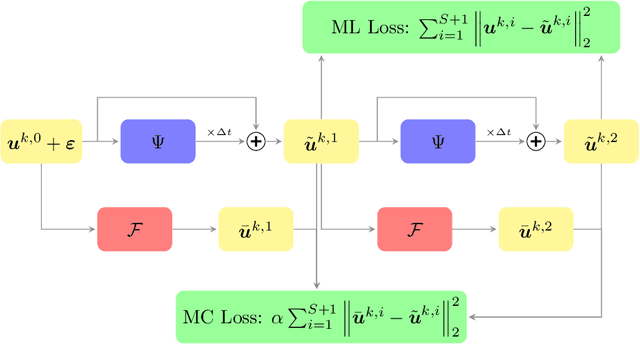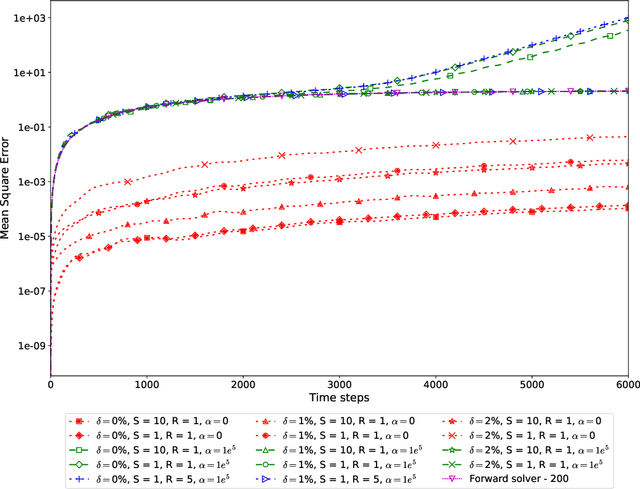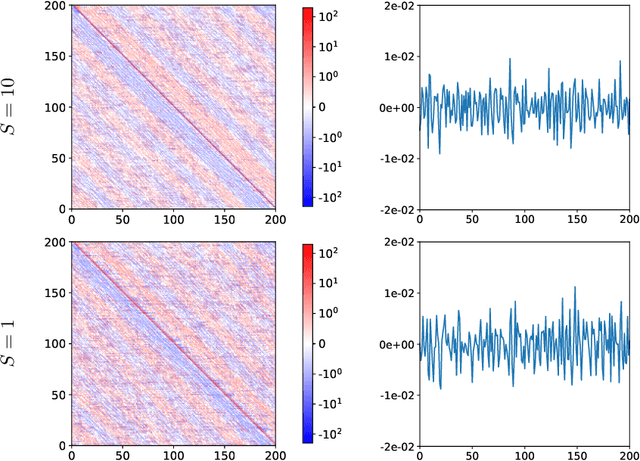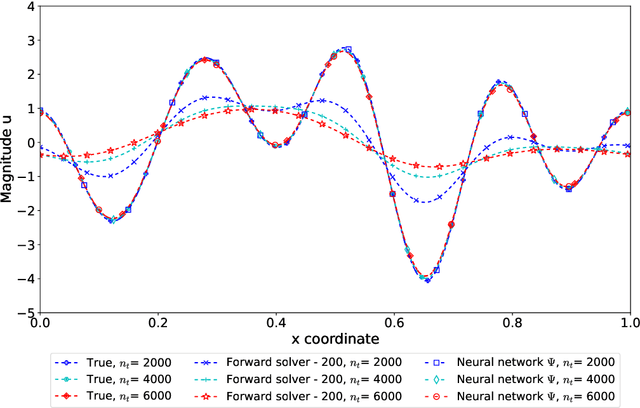Hai Van Nguyen
Department of Aerospace Engineering and Engineering Mechanics, the University of Texas at Austin, Texas
A model-constrained Discontinuous Galerkin Network (DGNet) for Compressible Euler Equations with Out-of-Distribution Generalization
Sep 27, 2024



Abstract:Real-time accurate solutions of large-scale complex dynamical systems are critically needed for control, optimization, uncertainty quantification, and decision-making in practical engineering and science applications, particularly in digital twin contexts. In this work, we develop a model-constrained discontinuous Galerkin Network (DGNet) approach, an extension to our previous work [Model-constrained Tagent Slope Learning Approach for Dynamical Systems], for compressible Euler equations with out-of-distribution generalization. The core of DGNet is the synergy of several key strategies: (i) leveraging time integration schemes to capture temporal correlation and taking advantage of neural network speed for computation time reduction; (ii) employing a model-constrained approach to ensure the learned tangent slope satisfies governing equations; (iii) utilizing a GNN-inspired architecture where edges represent Riemann solver surrogate models and nodes represent volume integration correction surrogate models, enabling capturing discontinuity capacity, aliasing error reduction, and mesh discretization generalizability; (iv) implementing the input normalization technique that allows surrogate models to generalize across different initial conditions, boundary conditions, and solution orders; and (v) incorporating a data randomization technique that not only implicitly promotes agreement between surrogate models and true numerical models up to second-order derivatives, ensuring long-term stability and prediction capacity, but also serves as a data generation engine during training, leading to enhanced generalization on unseen data. To validate the effectiveness, stability, and generalizability of our novel DGNet approach, we present comprehensive numerical results for 1D and 2D compressible Euler equation problems.
A Model-Constrained Tangent Manifold Learning Approach for Dynamical Systems
Aug 09, 2022



Abstract:Real time accurate solutions of large scale complex dynamical systems are in critical need for control, optimization, uncertainty quantification, and decision-making in practical engineering and science applications. This paper contributes in this direction a model constrained tangent manifold learning (mcTangent) approach. At the heart of mcTangent is the synergy of several desirable strategies: i) a tangent manifold learning to take advantage of the neural network speed and the time accurate nature of the method of lines; ii) a model constrained approach to encode the neural network tangent with the underlying governing equations; iii) sequential learning strategies to promote long time stability and accuracy; and iv) data randomization approach to implicitly enforce the smoothness of the neural network tangent and its likeliness to the truth tangent up second order derivatives in order to further enhance the stability and accuracy of mcTangent solutions. Both semi heuristic and rigorous arguments are provided to analyze and justify the proposed approach. Several numerical results for transport equation, viscous Burgers equation, and Navier Stokes equation are presented to study and demonstrate the capability of the proposed mcTangent learning approach.
 Add to Chrome
Add to Chrome Add to Firefox
Add to Firefox Add to Edge
Add to Edge